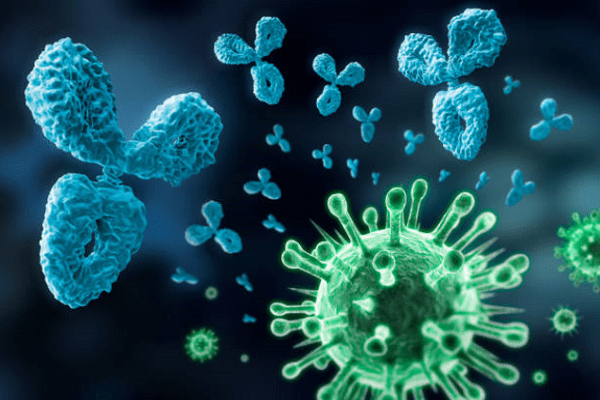Immunology and Allergology >>>> How long do antibodies last in a person's blood?
How long do antibodies last in a person's blood?

Two types of immunity (cellular and humoral) act in different ways and, accordingly, "remember" the antigen (infection) in different ways. The cellular mechanisms of the immune system (cellular immunity) do not remember how they react to a specific infectious agent that has entered the body. It does not matter whether the antigen (harmful microorganism) first stood in their way or for the tenth time, the reaction of the cells of this type of immunity will always be the same, once created and worked out by evolution. But humoral immunity acts "from memory", it knows how to "remember" its enemy (antigen), and with each recognition of an antigen (recognition of its biochemical structure), the humoral mechanisms of the immune system recreate those biochemical substances that once effectively destroyed this antigen.
Based on the clonal theory of the immune response, we can say that lymphocytes (antibodies) formed by the organs of the immune system during the next infection of the body in the image and likeness of an antigen-specific clone - a lymphocyte that first encountered an antigen (infectious agent) and interacted with it, quantitatively not all are consumed on the current fight against the antigen. Some of them are "preserved" by the immune system and are in the body (in particular, in the blood) in a stable unchanged state for some time.
For some antibodies this time has been determined (experimentally, as a result of multiple observations, analyzes), for other antibodies this “conserved” life time has not been determined, for some antibodies there are no “conserved” variants, since their life time is zero, and many of antibodies remain in the body for life - this is the most successful option for the future protection of the body. These "conserved" lymphocytes are called "memory lymphocytes", and the very fact of the existence of such lymphocytes is called "immunological memory". In order to activate "memory lymphocytes", that is, antibodies, inflammatory mediators are needed, but such lymphocytes - antibodies react even to minimal tissue inflammation in the body, which allows you to quickly "deploy" a worthy response to the antigen (microbe).
Until today, there are still many questions about how long an antibody exists in the human body after it recovers. There is a theory (still in need of evidence) that antibodies live the longest in the body, when somewhere in the body, even after a complete cure, there is an antigen (infectious agent) in a latent form - in the form of a latent infection.
It was noticed in the course of experiments that for the human body, the lifespan of absolutely identical antibodies can be individual (varies). And no matter how similar human organisms are biologically, there remain the individual characteristics of the work of immunity for the production of antibodies and their lifetime. For this reason, the results of vaccination are analyzed empirically and statistically, and on this basis, a prediction of antibody production and their lifespan is made. This area of immunology remains open to further study.

Read

Read



























